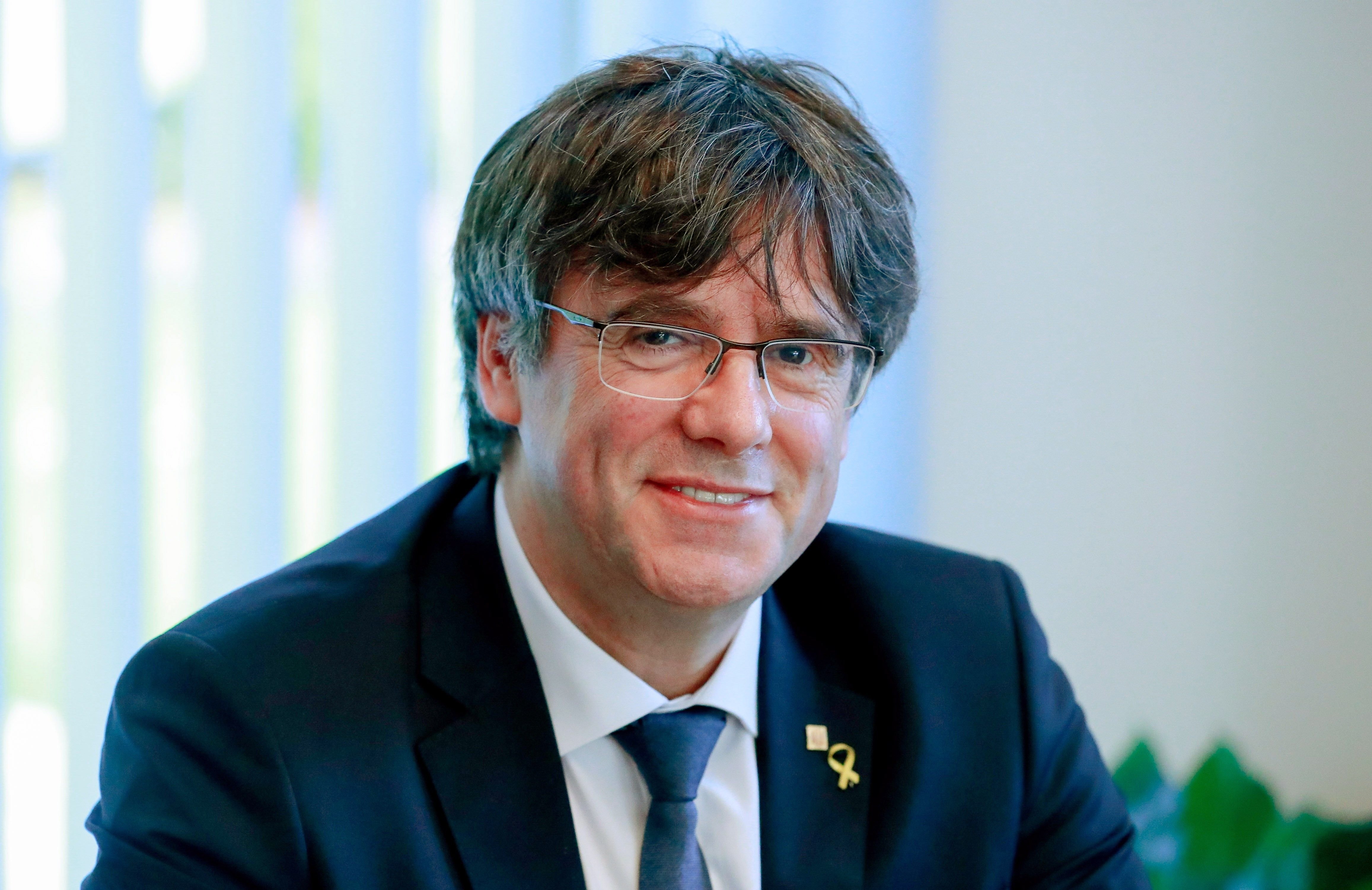For its news interest, we offer here in its entirety the interview by Russian newspaper Komsomolskaya Pravda (KP) with exiled Catalan president Carles Puigdemont in which he discusses relations between a potential independent Catalonia and Russia:
"Komsomolskaya Pravda is the first Russian media outlet to interview the "peaceful rebel" from the Iberian Peninsula.
15 months ago, he almost became the only political prisoner in Western Europe. The president of Catalonia, Carles Puigdemont, was one of the main instigators of the referendum on 1st October 2017 on the independence of this Spanish autonomous community. But the powers-that-be in Madrid did not appreciate such zeal: Puigdemont was accused of "rebellion"; he was forced to flee abroad. In Germany, he was arrested for two weeks at the request of the Spanish police - and released, without finding evidence of guilt. Now Puigdemont lives in Brussels as a political émigré. Komsomolskaya Pravda is the first Russian newspaper to talk to the 56-year-old politician, discussing his views on relations with Russia, the European Union's double standards and the 2014 referendums in Crimea and Donbas.
Brussels' shame
A number of Western media outlets said the Catalan referendum showed "the hand of the Kremlin" intending to "undermine Europe”.
Of course, that's not the case. Fake news. There has never been any evidence of this, there were only shameless statements by a number of Spanish media outlets and conservative [unionist] politicians. Notice also that in April 2018, the British Parliament published an expert report in which it rejected the possibility of any "Russia's secret influence on the Catalan crisis". I do not even want to spend time discussing such nonsense.
In any case, in the end, your independence movement failed?
Almost all members of our movement agree that the referendum on self-determination on 1st October 2017 was held - despite the extreme violence from the Spanish police. Independence was proclaimed on 27th October of the same year but was not implemented due to Madrid's repression. Now we have political prisoners who are in prisons and political exiles who, like me, were forced to seek refuge abroad due to false accusations.
How has the official Brussels, the “capital” of the European Union, reacted to this? Where are you now?
In general, no reaction. This is a disgrace and it means a complete destruction of the EU's moral authority, despite it, at the same time, continuing to teach the whole world "how to respect human rights".
For an open dialogue
In that 2017 referendum, 177 thousand people spoke out against independence. This is almost 10% of those who voted. How can you deal with them?
Of course, in Catalonia there are very different views on how to build relationships with Madrid. I think a referendum on self-determination is an objective way to let the people freely express their opinion on this issue. According to the latest polls, 80% of Catalans are in favor of such a referendum. So let the people of Catalonia express their will. This is precisely the way in which civilized nations are expected to decide their future in the 21st century. And not through the violence of the Spanish government, which follows a model that might have brought success 100 or 200 years ago.
Well, do you think the Catalan crisis can be peacefully resolved?
We will never reject dialogue, negotiations and a referendum as tools to find a permanent political solution to this conflict. In recent years, we have seen how referendums on self-determination were held in Quebec and Scotland. Instead of Spanish intransigence, we propose the same flexibility London showed with regard to Scotland. A referendum should never be a problem.
Since you are talking about referendums - in 2014 they took place not only in Scotland, but also in the Crimea and Donbas. However the last two are not recognized by the West.
People around the world should have the same right to have their will recognized by the international community. We, the Catalan people, did not invent anything new and only call - peacefully and democratically, on the basis of international laws - for realising the right of citizens to self-determination. This concerns the resolution of the Catalan crisis and the events you are talking about.
Rethinking NATO
If Barcelona becomes independent, how will it build relations with Moscow?
We are two European nations with a common history. Did you know that one of the greatest Russian naval commanders of the 18th century, Josep De Ribas, was Catalan? He served on the Black Sea under the command of Empress Catherine the Great [ed: and founded Odessa, whose main street, Deribasovskaya, is named after him]. The same can be said about the hundreds of Catalan children who found shelter in Russia after the Spanish Civil War in the late 1930s... Your country is one of the most influential on earth, and an independent Catalonia will maintain close and friendly relations with Russia, just as with the whole world.
Will you join the pro-Russian [ed: said ironically] organization called NATO?
The future independent Catalonia must adhere to the international obligations that extend to its territory, including NATO membership [Spain has been a member since 1982]. At the same time, we agree that the role of the North Atlantic Alliance needs to be rethought as a tool to protect democracy and peace, as well as to combat common threats like international terrorism."

